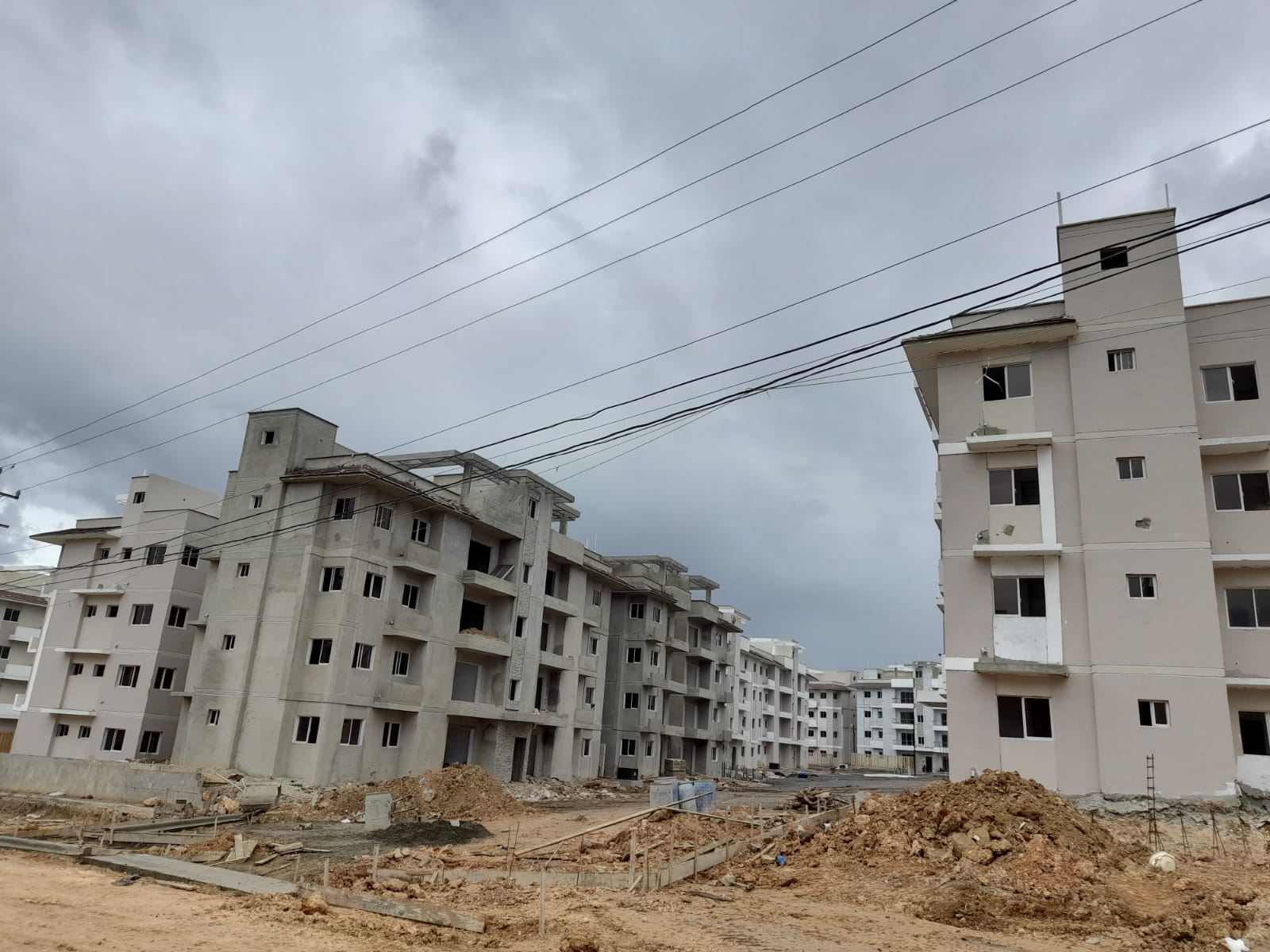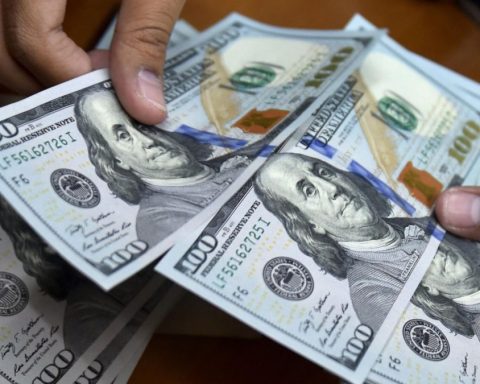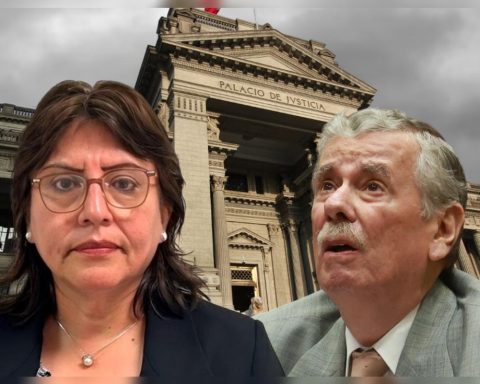The rise in the monetary policy rate -the third since the end of November 2021- arranged by the Central Bank of the Dominican Republic (BCRD) could cause a contraction in credit, with an impact on lending interest rates that could return to pre-pandemic levels.
Economists and other experts on the subject agree on this, some of whom warn of possible effects on the productive sectors.
However, the point in common between those specialists who give their opinion has to do with the fact that “it was to be expected that after some time implementing monetary stimulus policies, to cushion what was caused by the covid-19 pandemic, the bank would come henceforth with a more restrictive position”.
At its monetary policy meeting in January 2022, the BCRD increased its monetary policy interest rate by 50 basis points, going from 4.50% to 5.00% per year. But before that it had raised 150 basic points in the months of November and December. These are steps that contribute to increasing the cost of money. And this is where some of the fears exposed arise – precisely.
Professor Antonio Ciriaco Cruz, Vice Dean of the Faculty of Economics of the Autonomous University of Santo Domingo (UASD), assures that “obviously 2022 will be a year where monetary policy will be much more restrictive.”
“I would say that the first thing to keep in mind is that it is normal that when central banks, in general, lower monetary policy rates artificially, that will subsequently impact market rates,” said the economist on the other hand. Miguel Collado Di Franco, Executive Vice President of the Regional Center for Sustainable Economic Strategies (CREES), when addressing the issue, at the request of the Caribbean.
“These subsequent periods of increase are always to be expected. It is a consequence of artificially creating lower credit conditions, ”Collado Di Franco assured in his analysis.
“That is going to have an impact on the channel and the rest of the interest rates, and this year we could see average active interest rates close to the pre-pandemic years, perhaps 12 or 13%. This is going to have a significant impact on private activity, because as the cost of money becomes more expensive, credit to the private sector is restricted and this affects private investment and private consumption, which are two important components in the growth of the economy”, Ciriaco Cruz, professor of the Primate of America, pointed out.
“Therefore, this year there will also be a great moderation in economic growth and I believe that the Government will have to work hard to achieve the growth goals that it has set itself, between 5 and 5.5%,” he explained.
In his opinion, with less economic activity and with a monetary policy rate that possibly has a greater increase due to the issue of inflation, it is obvious that this can compromise the growth of the current year.
From his point of view, this is an element that must be taken into consideration in this whole process of changes in the monetary policy of the central banks.
He argued that the issue of inflation is the most worrying and perhaps the main challenge and the issue that has caused this change in monetary policy and in a way will cause increases in interest rates in the coming months, both active and liabilities, which possibly have levels very similar to the interest rate prior to the current health crisis.
“I understand that, possibly, if this trend continues, of tightening the monetary policy rate, we will have interest rates close to 12 and 13 percent on average this year. It is obvious that inflation will continue. There are reasons why this situation continues to persist. The issue of supply chain disruptions hasn’t gone away yet,” he insisted.
Ciriaco Cruz is clear that it is a slow process, of convergence between global supply and demand and there is also a monetary component, the product of the stimuli given by the central banks, which is also affecting underlying inflation, which is that that has to do with monetary policy and that last year ended close to 6.23%.
“That is to say, while the Central Bank set an inflation target of 4%, underlying inflation ended at 6.23% and accumulated general inflation practically in the vicinity of 8%. Therefore, the Central Bank will do everything in its power, I think, to keep inflation target expectations anchored, because, otherwise, it runs the risk, if it does not keep those expectations anchored, that the processes of de-anchoring could affect the credibility of central banks”, he indicated.
And he added: “That is why the Central Bank has taken this measure, which will obviously have repercussions on interest rates, both active and passive. This is going to slow down private consumption and private investment and is going to cause a great moderation in the growth rate of the economy”.

Those who think to borrow
From the perspective of Miguel Collado Di Franco, those who plan to embark on new credits in financial intermediation entities will now have to make better analyzes of the profitability that they could obtain from the interest rates that they can receive.
“And obviously the payments of those who have already taken the loans will become more expensive, who should have foreseen that this would be temporary, because the expansionary policy cannot be maintained indefinitely,” added the CREES specialist.
“Yes, it is natural that this affects economic agents, because it is an artificial economic condition created at one point, which must then be reversed. It is natural… it happens in all economies”, he assured, responding to various questions from the Caribbean.
He argued that “it is part of the negative subsequent effects that these expansionary monetary policies create. “And economic agents suffer. Consequently, their financial expenses become more expensive”, he indicated.

Let’s see what the business community thinks
The executive vice president of the National Council of Private Enterprise (Conep), César Dargam, is of the firm opinion that the Central Bank has been correctly implementing a monetary policy to counter collateral effects of the pandemic.
“In a first stage, it did so with expansionary measures that sought to guarantee liquidity and encourage consumption. At this time, and faced with abnormal levels of inflation worldwide, the bank has turned to restrictive measures. We trust these measures will contribute to generating stability, and that in the coming months we will return to the inflation target range,” said Dargam.
PissOurs, the vice president of the Dominican Confederation of Micro, Small and Medium Construction Companies (Copymecon), Frank Guerrero, said that this issue of the restrictive policy that the Central Bank is going to have is something that the organization fears.
“They are going to dismount the stimulus and with that they can drag us on the horse’s legs. In the construction sector, specific lines of incentives must be maintained because it is necessary to grow. And most countries have had special policies for construction. That is why we advocate,” said the leader.

Industry Association Vision
The president of the Association of Industries of the Dominican Republic (AIRD), Celso Juan Marranzini, in response to questions from the Caribbean about the increase in the MPR, said that “it is about seeking a balance between imported inflationary pressures and growth of the Dominican economy
“External shocks such as the one caused by the pandemic to the global supply chain and the increase in oil and gas in international markets have made production costs considerably more expensive, while a combination of stimuli to the citizens of many countries, sobare all of the United States and Europe, and the reorientation of consumption to purchases of goods have created a great demand that generates pressure on prices and production throughout the planet”, said Celso Juan.
He indicated that “this has turned inflation into the main risk factor for economies, including the Dominican one.”
Marranzini states that “although it is true that this inflation was expected to be temporary, this trend seems to be longer than expected due to the new wave caused by variants of covid and the geopolitical tensions around the crisis in Ukraine that are driving up oil prices.

Seeking relief
The increase in reference rates by the Central Bank of the Dominican Republic seeks to alleviate inflationary tensions that may arise internally, so that inflation does not also become a more serious problem for the people and for development. of our country, and even for production. This is how the AIRD exposes it.
“In addition to the reference rate, we believe that a correct way to face the situation is to continue stimulating and supporting local production that leads to more and more jobs and that sustains economic growth and relative price stability,” says the AIRD.
Given this process, after having left its monetary policy rate (MPR) fixed for 13 months, the Central Bank increased it from 3% to 3.5% in November last year, and then from 3.5% to 4.5% in December. already 5.0% this week.
The Bank explains this decision based on the pressures on inflation represented by the prices of oil and other important raw materials for local production, as well as the increase in freight costs.
The monetary policy interest rate is one of the Central Bank’s tools to control inflationary outbreaks.
“It is true that it impacts the interest rate and, clearly, the financial cost. However, in the face of inflationary processes due to external causes, it would be worse to do nothing. It is a mitigation mechanism that we hope will not be sustained over time, while at the same time we manage to maintain robust economic growth, which is key to job creation”, the industrialists maintain.

















